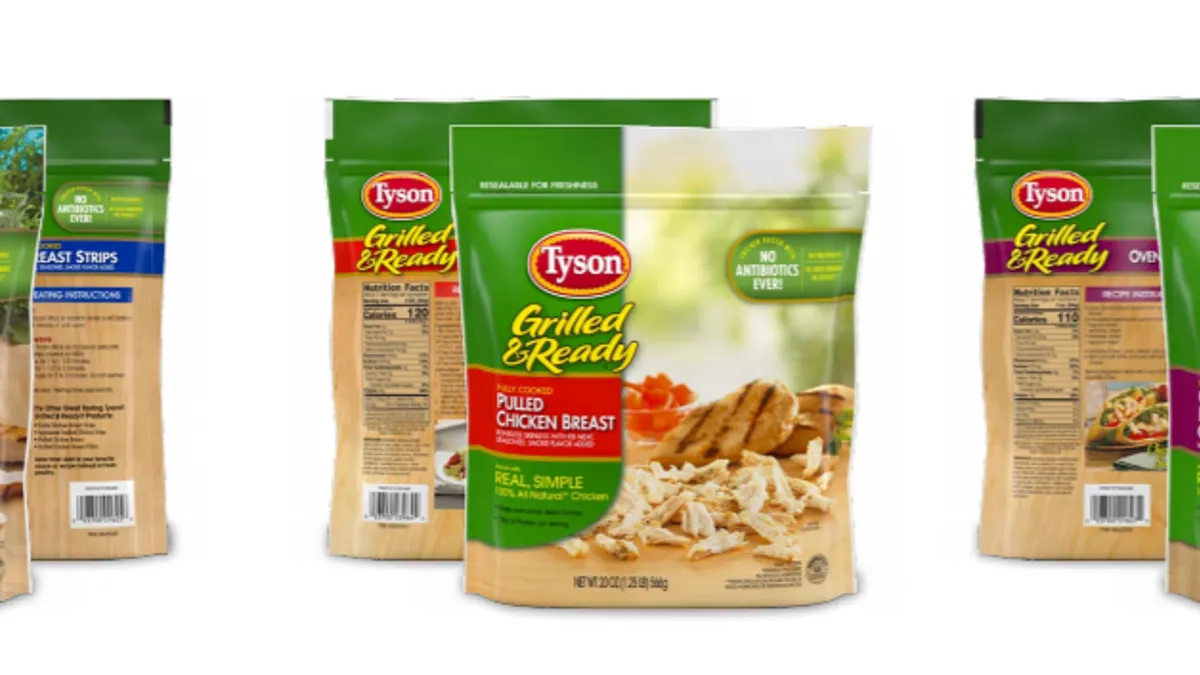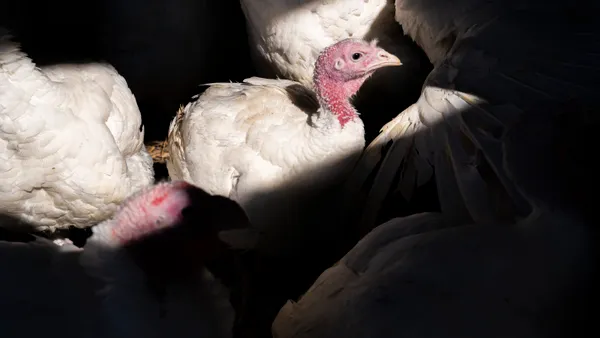Dive Brief:
- Tyson Foods will no longer feature “no antibiotics ever” labels on some of its chicken products as it reinstates the use of some antibiotics in its poultry supply chain, the company told Food Dive in a statement.
- The company said its products will transition to “No Antibiotics Important to Human Medicine” labeling by the end of this year. About half of the poultry industry uses some antibiotics, according to Tyson’s statement.
- The move comes amid calls for greater transparency in the poultry sector, after last year’s highly pathogenic avian influenza outbreak, which led to nearly 60 million flocks being culled.
Dive Insight:
Tyson said it made the decision to distance itself from being fully antibiotic-free “with the best interest of people and animals in mind,” based on science and an evolving understanding of the best practices. The “no antibiotics important to human medicine” label is recognized by the USDA and the World Health Organization and allows for the use of antibiotics that are not crucial to the treatment of human diseases.
Tyson — the largest poultry producer in the U.S. — first announced in 2017 its intention to eliminate antibiotics from its poultry products, after years of pressure from consumer groups. At the time, Tyson said it would replace antibiotics with probiotics in its chicken production.
Rival companies also prioritized branding their chicken as antibiotic-free. Perdue said on its website none of its poultry products ever contain antibiotics, claiming that adding oregano and thyme to the diet of its chickens help them stay healthy. Pilgrim’s Pride’s website said while its hatcheries have been antibiotic-free since 2016, it uses antibiotics as a course of action against disease if recommended by a veterinarian.
Tyson’s decision may signal a greater effort on behalf of poultry producers to prevent disease, after the significant impact of 2022’s bird flu outbreak. Vaccinating poultry, a proposed option the Biden administration said it is testing, is not popular among broiler chicken producers. University of California, Davis poultry health professor Maurice Pitesky told Food Dive earlier this year broiler chicken companies — which make 20% of their profits overseas — oppose vaccines because it would prevent them from selling it in regions that have stricter regulations than the U.S.
The use of antibiotics in food has faced significant pushback from consumer groups and public health activists in recent years. Specific bacteria have grown resistant to the antimicrobial substances found in antibiotics, including those given to poultry. A 2021 study published in medical journal Infection and Drug Resistance found that using antibiotics on poultry farms significantly increased resistance to bacterial strains in the soil.
Industry trade groups have defended the use of antibiotics for chicken. The National Chicken Council said in a blog post that antibiotic use for poultry is necessary to prevent disease. It said several antibiotics are approved for use in poultry by the FDA and USDA, but federal rules require that antibiotics must be cleared from the animals’ systems before they are sold.
Health and animal welfare advocates claim the industry is more concerned about profits than the health of animals and consumers. The Humane League said in a blog post antibiotics spur chickens to grow unnaturally large and pose grave threats to humans, especially immunocompromised people.












